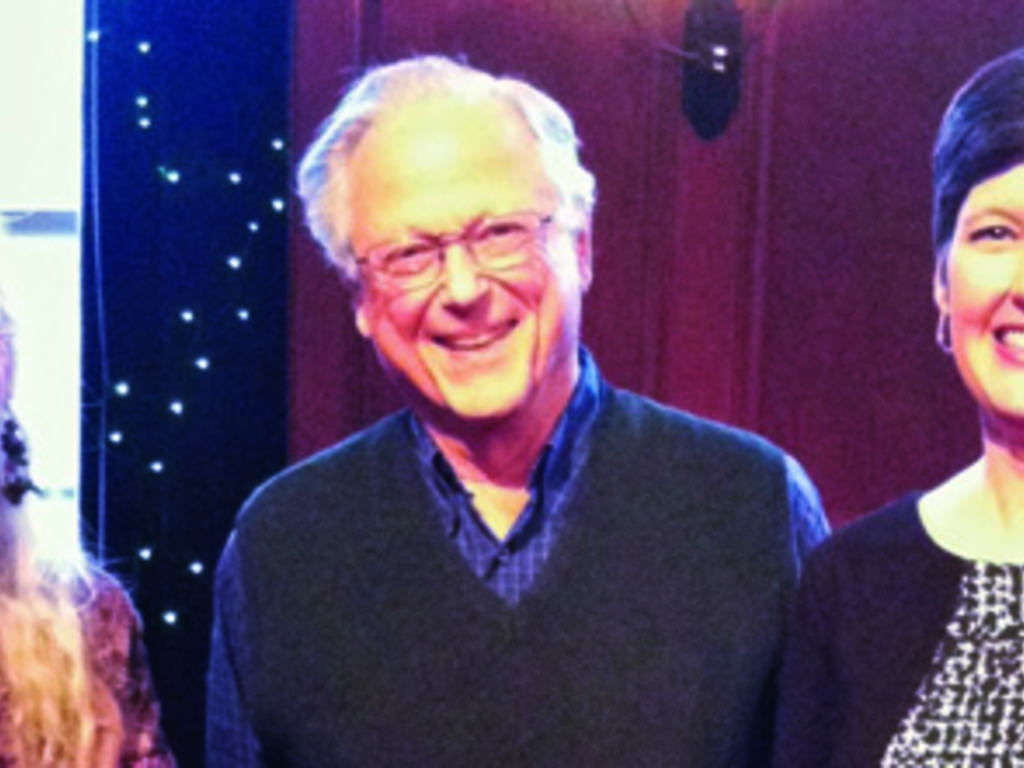By Lynn Conlee
Poet, novelist, and composer Paul Bowles might be best known for his association with the Beat writers of the 1950s, or perhaps for his expatriate status, earned by moving to Tangiers in 1947. In whatever manner he may be familiar, many of his fans agree that he is underrated as both a writer and a composer. Dr. Carole Blankenship ’85, associate professor of music at Rhodes, hopes to help remedy at least half of that equation this summer when she publishes several previously unpublished songs by Bowles, who died in 1999.
For classical singers like Blankenship, Bowles’ songs are critically important. They are considered miniatures and are light and airy in nature, unlike his literary work, which can be dark and deeply psychological. “I come to this from the unpublished side of his work, which I discovered while researching another interest, songs of the Works Progress Administration,” says Blankenship.
In January, Blankenship joined tenor Chad Kranak and pianist Irene Herrmann, who is also Bowles’ music executrix, in Brooklyn, NY, to perform several Bowles songs. The event was sponsored by the String Orchestra of Brooklyn. Additionally, she has presented a paper at the International Paul Bowles Conference in Lisbon, Portugal, and lectured on his work in Brisbane, Australia.
Bowles wrote orchestrated scores, songs based on poems, works for solo piano, and music for Broadway. “He wrote all the incidental music for Tennessee Williams’ Broadway shows,” she notes. “If you saw The Glass Menagerie when it first appeared on Broadway, you heard his music during scene and set changes.” Williams and Bowles were close friends.
A company published some of Bowles’ songs in 1984, but did not get the rights for all the poetry and could not reprint the song anthology, so his published work languished. With funding from two Rhodes Center for Outreach in the Development of the Arts (CODA) grants, Blankenship and two students, Kenneth Scott ’11 and Tyler Turner ’11, utilized special software over two summers to transcribe around 45 handwritten scores and lyrics, often based on famous poems, to produce publishable scores.
Thus far, Blankenship and Herrmann have been credited with publishing two groups of songs for the first time, Three Songs from the Sierras, followed by four famous Bowles’ works, Cuatro Canciones de García Lorca, written using poems by Spanish poet, dramatist, and theatre director Federico del Sagrado Corazón de Jesús García Lorca. The poems were translated by modern languages Prof. Donald Tucker. It took two years for Blankenship to get publication rights from the Lorca estate.
“What I hope to do going forward is to publish some songs with poetry by Bowles and his wife, Jane, who also wrote,” says Blankenship. “That’s my next project and that won’t take long, because I will have the permissions.”
Permission will certainly be granted by the circle of Bowles supporters, who, like Blankenship, view him as a brilliant talent whose recognition is long overdue.
